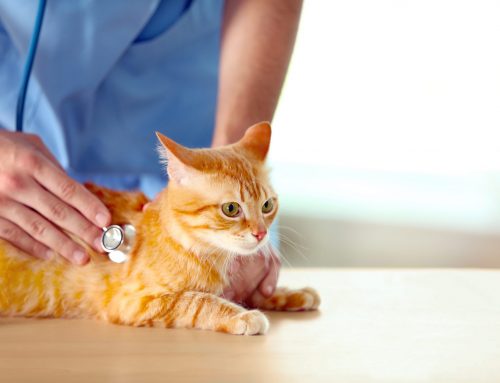There’s an old business adage that states one should always keep business and personal matters separate. Let’s not make it personal.
While the intent of this saying is certainly sage business advice, it is often not something that a veterinarian can avoid in the world of commercial office leasing. The majority of our clients who are starting a veterinary clinic, or have been in business for many years and are renewing their veterinary office lease often tell us that their landlords are demanding. Why? They often make them sign a “personal guaranty” or “indemnity agreement”, or else the deal is off!
This article is going to help you understand what a “personal guaranty/indemnity agreement” is as it pertains to your lease, and explain how as a small business owner, you can attempt to limit or avoid it altogether.
What is a “personal guaranty” in the lease, and why does your landlord care?
 A personal guaranty, in its basic form, is a contractual agreement in your clinic lease that obligates an individual responsible for paying back a debt, in the event the tenant is in default. In regards to your veterinary clinic, it is a safety net that many landlords demand a tenant sign in order to ensure the financial performance of the lease continues, regardless of what happens with the tenant’s corporation, i.e. bankruptcy or business closure. It is important to note that a “guarantor” is often required to guarantee the obligations of not only the initial lease term, but also any “options to renew” or future extensions of the term.
A personal guaranty, in its basic form, is a contractual agreement in your clinic lease that obligates an individual responsible for paying back a debt, in the event the tenant is in default. In regards to your veterinary clinic, it is a safety net that many landlords demand a tenant sign in order to ensure the financial performance of the lease continues, regardless of what happens with the tenant’s corporation, i.e. bankruptcy or business closure. It is important to note that a “guarantor” is often required to guarantee the obligations of not only the initial lease term, but also any “options to renew” or future extensions of the term.
For a startup veterinarian, landlords often require you to sign a personal guaranty due to the lack of operational experience of owning a clinic or renting commercial property. For an established clinic/hospital that has been in successful business operation for many years, a landlord may still request that you remain personally liable because they’ve had the benefit and comfort of this security over the term of your lease, and they do not want to move forward without it in place.
“Guaranty” vs. “Indemnity” in your veterinary office lease
As a veterinary tenant, it is important to understand the difference between these two forms of contracts since there is great likelihood that a landlord will put one of these agreements in front of you at some point during your career.
In a personal guaranty agreement, the tenant remains primarily liable for the lease performance, but, if after all efforts have been exhausted by the landlord to get the tenant to remedy the outstanding default, the personal guarantor will be held accountable.
The main difference with an indemnity agreement is that the indemnifier has an independent responsibility to fulfill contractual obligations alongside the tenant. In this instance, the landlord can hold both a tenant and indemnifier responsible at the same time, should a default occur.
Spousal requirements
For added protection, some landlords will not only require you to personally guaranty the obligations of the lease, but will ask that your spouse also assume responsibility and sign a personal guaranty. For many reasons, putting your spouse on the hook as a personal guarantor is not ideal, which makes removing this requirement a common and important part of your lease negotiation strategy.
Is it possible to limit the personal guaranty in the lease?
While the first and foremost position of any good veterinary office lease negotiator would be to structure the lease without a personal guaranty, a seasoned negotiator will acknowledge that it’s not always possible, especially in a first-class property. However, there are ways a guarantor or indemnifier can limit exposure throughout the term of the lease: time, financial limitations, or a combination of both.
- Time Limit on Personal Guaranty:

An example of putting time constraints on a personal guaranty would be if the lease were to state that in the event of no default, the tenant is released after a certain amount of time, such as “at the end of the fifth lease year”. For a tenant signing a ten-year lease term or a lease that has multiple options to renew included, this situation is ideal. - Financial Limitations on Personal Guaranty:
An example of financial limitations on a personal guaranty would be to offer the landlord a set dollar figure or a certain number of months’ worth of rent that would represent the maximum amount of exposure that you would be on the hook for if you found yourself in default. This “cap” specifies the exact amount that would be on the line if action were taken against you in a default proceeding.
I just sold my veterinary clinic…am I off the hook for lease payments?
Many veterinarians will think that they have been relieved of the obligations of an indemnity or guaranty after they sell their veterinary clinic and assign the lease to the incoming vet. More often than not, this is not the case, and the guaranty will remain in place after the assignment takes place. This means that you, the original guarantor, can be called upon to pay the landlord rent at a future, indefinite date should the new tenant default on their lease obligations. Imagine you sell your veterinary clinic and five years later are happily in retirement when you receive notice from your previous landlord that the current tenant has defaulted on rents, and they’re coming after you for payment!
The sale of your veterinary clinic is one of the most important and valuable financial transactions you will make in your life. This is why it is so very important for you to have properly worded lease language in your agreement.
Conclusion
Carefully and expertly crafted indemnity and personal guaranty language in your veterinary office lease is paramount in any lease negotiation, and should be given the same amount of time, energy and focus as the negotiation of other terms such as rent, length of term, options to renew, etc.
If you are being asked to sign a lease agreement by your landlord that exposes your personal assets, you need to understand what you’re getting into. Have an expert veterinary office lease negotiator review and negotiate the terms of your lease for you to minimize or remove personal liability, which is critical to the long term success of any veterinary clinic, and furthermore, will help protect and keep your business and personal life separate.
 There is little meaningful influence a veterinary tenant will be able to exert once the landlord’s redevelopment plans are in play. The surest and most effective way to protect your investment against the redevelopment/demolition clause is to negotiate its finer points in your lease before you become a tenant – namely, at the lease negotiation stage.
There is little meaningful influence a veterinary tenant will be able to exert once the landlord’s redevelopment plans are in play. The surest and most effective way to protect your investment against the redevelopment/demolition clause is to negotiate its finer points in your lease before you become a tenant – namely, at the lease negotiation stage.
Author: Adam Creen, Professional Lease Negotiator, Cirrus Consulting Group
Questions about your veterinary office lease?
Schedule your personalized consultation with a lease expert today!
No Fields Found.




